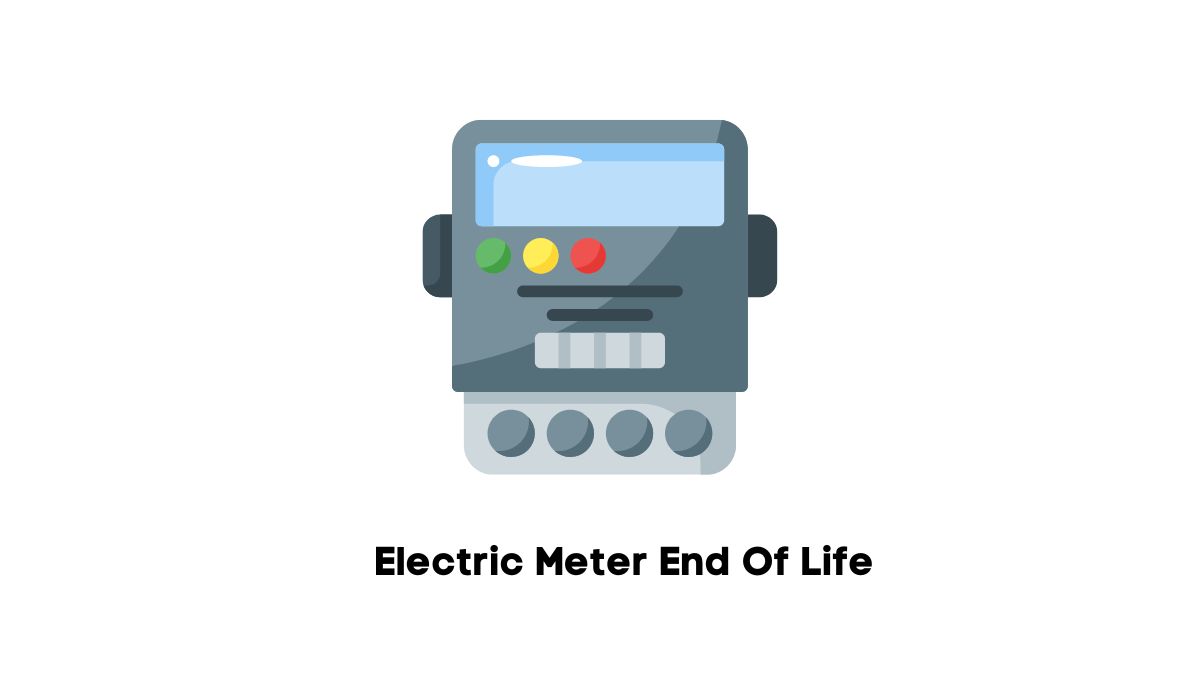Energy meters have lifespans of ten to twenty years. But what exactly does it mean for an electric meter to reach the end of its life, and what are you expected to do in response? Things will make sense once you understand the following:
1). The Integrity of AN Energy Meter
Electric meters are designed to track your energy consumption reliably. Reliability matters because energy companies use a meter’s readings to bill you. The more reliable the readings, the more accurate the utility bills.
Some companies collect these readings manually every month using meter readers. Others collect readings every half hour from smart meters. A meter’s accuracy will deteriorate over time as it wears out. The readings will become less trustworthy until it stops working altogether.
This is why utility providers prefer smart meters to their digital and analog counterparts. They can remotely monitor a smart meter’s health, replacing the device when it fails.
2). Certifying The Electric Meter
You don’t have to question a meter’s accuracy. Many governments have departments that certify electric meters, approving their design and making sure a meter operates within the legal parameters. According to GOV.UK, the Office for Product Safety and Standards performs that role in the UK.
They receive and resolve complaints from people questioning the accuracy of their meters and bills. Such organizations will send investigators to homeowners who want an independent expert to test and confirm the integrity of their meter.
This process is usually free. However, the energy provider may ask you to cover the cost if the independent investigator determines that your meter operates within acceptable legal parameters.
Even if you trust your meter, organizations like the Office for Product Safety and Standards matter to you because they determine the end of life.
3). What Does ‘End of Life’ Mean For An Electric Meter?
‘End of Life’ is the equivalent of a ‘Best Before’ food date. If your meter has a 10-year lifespan, regulators expect the meter to perform optimally for ten years. Does that mean an 11-year-old meter will stop working?
Not necessarily. The meter can still perform its functions. However, don’t be surprised if the device develops faults. The ‘End of Life’ warning encourages you to expect the worst. Start thinking about a replacement once the device crosses this threshold.
4). Is An Electric Meter At The End Of Its Life Unsafe?
This question arises because energy providers call old meters unsafe. They use the term in the letters they send homeowners asking them to upgrade their aging meters. However, the experts at Which? in the UK have clarified that passing its ‘End of Life’ date doesn’t make a meter unsafe.
Utility providers use strong language because many consumers are reluctant to replace old meters. They are more likely to surrender to the company’s request if they think the meter is a threat to their health.
But that is not true. Although aging meters should concern you because they can lead to incorrect billing.
5). How Can You Tell A Meter Has Reached The End Of Its Life?
Meters will become unreliable as they approach their final days. You will observe one or more of the following symptoms:
- Your energy bills will spike unexpectedly. This can happen because of a defective appliance. Don’t be so quick to blame the meter until you consult an electrician. One way of locating the rogue appliance is to switch your equipment on one at a time while recording the readings.
- Your energy bills will fall drastically. This doesn’t sound like a bad thing. However, electricity suppliers are not charities. They won’t let you slide simply because your meter reached the end of its life and stopped tracking your energy consumption. Once they identify this fault, they will ask you to compensate them for every kilowatt of energy you used while the meter was down. Without the readings from the meter, they will estimate your energy consumption using previous readings.
- Your bills will remain the same even though you’ve taken steps to lower your energy consumption.
- If you have a smart meter, it will flash random messages and error codes. Some meters are intelligent enough to detect malfunctions. Don’t ignore these warnings.
- If the meter has moving parts, they will stop turning. You see this in analog meters with rotating components.
- The meter will make noise.
- The meter will record readings even though you’ve disconnected every appliance in the house.
In the absence of these alarming signs, the utility company will let you know once the meter exceeds the expiration date on its certificate. Many organizations test meters routinely. They may extend your meter’s certificate beyond the initial ‘End of Life’ date.
6). Do You Must Replace An Electric Meter At The End Of Its Life?
Many expired meters are perfectly healthy. They will continue to work for years, possibly even decades. Replacement is unnecessary until you notice alarming symptoms, such as inaccurate utility bills. However, some countries won’t give you a choice. They have regulations that compel energy companies to replace every meter that exceeds the ‘End of Life’ date. Some regions are running campaigns to replace every traditional meter with a smart meter, which has created animosity because many consumers hate smart meters.
They continue to deliberately reject the devices. Energy providers cannot force a consumer to accept a smart meter. But if your meter dies or reaches the end of its life, local regulations may compel them to replace it with a smart meter whether you like it or not.
Even if your energy provider doesn’t care for smart meters, traditional meters have become more difficult to acquire because manufacturers are choosing to prioritize smart meters. A time will come when everyone owns a smart meter.
Interestingly, you can ask the energy provider’s personnel to reconfigure the smart meter into a dumb device that acts more like a traditional meter.

